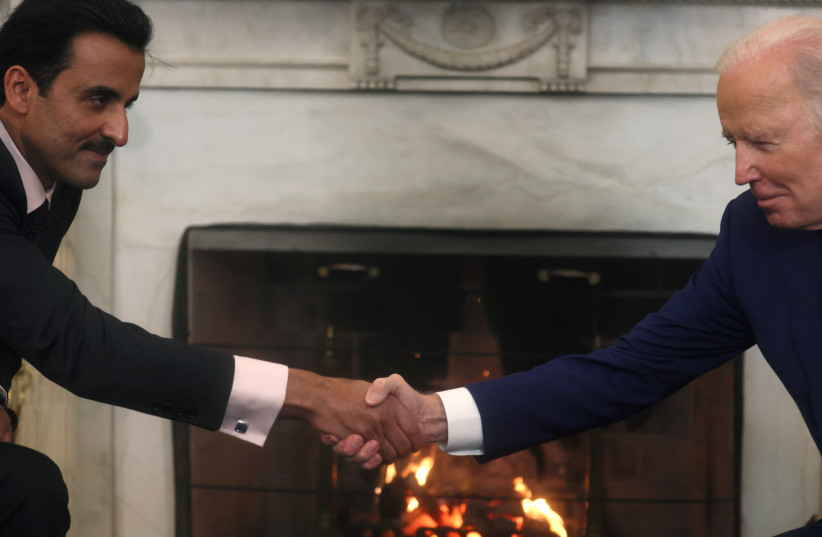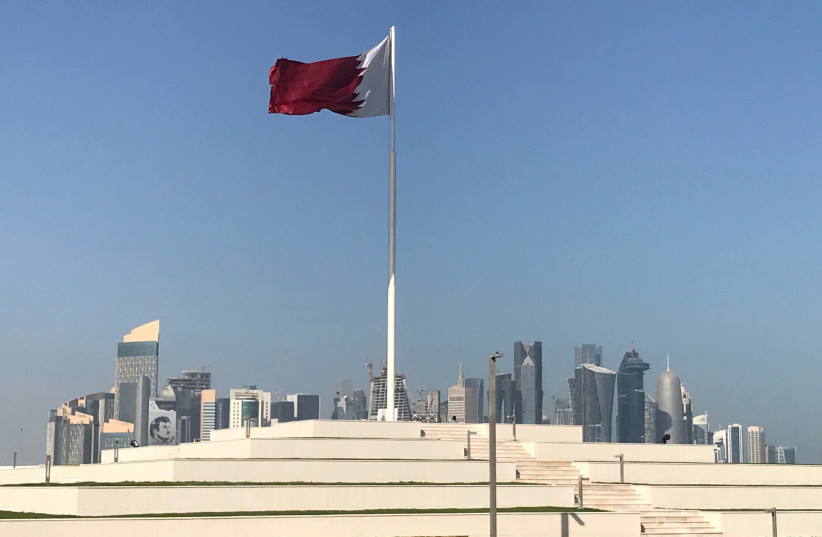The president informed Emir Sheikh Tamim Bin Hamad Al Thani of Qatar about his intention during a White House meeting on Monday.

US President Joe Biden hosted Emir Sheikh Tamim Bin Hamad Al Thani of Qatar at the White House on Monday and expressed his intention to designate the Gulf state as a major non-NATO ally.
According to the White House readout, “they reaffirmed their mutual interest in promoting security and prosperity in the Gulf and broader Middle East region, ensuring the stability of global energy supplies, supporting the people of Afghanistan, and strengthening commercial and investment cooperation.”
“In recognition of the strategic partnership between the United States and Qatar, which has deepened over the past 50 years, the president informed the emir of his intention to designate Qatar as a major non-NATO ally,” the White House said in a statement.
Kristian Coates Ulrichsen, Middle East Fellow at Rice University’s Baker Institute said that he believes that Biden’s announcement “is significant as well as symbolic.”
“While the prospect of designating Qatar a major non-NATO ally was raised at the time of the US-Qatar Strategic Dialogue in September 2020, it has arguably increased in relevance in the fifteen months since, as Qatar demonstrated in Afghanistan how it can play a critical role in facilitating and representing US interests across the region,” said Coates Ulrichsen.

“It is likely a recognition of the value that Qatar brings to the table on issues such as Afghanistan that the designation has moved forward,” he added. “In practical terms, while it does not involve a mutual defense commitment as not an ‘alliance’ as such, it will provide Qatar with benefits in terms of closer security cooperation and defense trade.”
He went on to say that the designation is also “a highly prestigious and symbolic act that affirms the depth and durability of the bilateral relationship, and is the first such designation accorded to a Gulf State for nearly 20 years after the George W. Bush administration designated Bahrain and Kuwait major non-NATO allies during the early years of the post-9/11 ‘war on terror.’”
“The designation is a practical one in that it is a significant step up from the strategic partnership and a symbolic affirmation of the close ties with the US,” said Coates Ulrichsen.
“The most significant thing about the visit is that it is happening first – before an MbZ visit and of course before a Saudi visit,” said Elliott Abrams, senior fellow for Middle Eastern studies at the Council on Foreign Relations and former US deputy national security advisor.
“No doubt Biden will want Qatar ready to supplement European natural gas supplies if Russia invades Ukraine, so they will discuss Qatar’s available supplies and whether some other customers can be delayed while European supplies are low,” said Abrams. “I would hope that Biden pushes Qatar to join the Abraham Accords, but there’s no sign that he will do so.”
A senior administration official told reporters ahead of the visit that Sheikh Tamim is the first head-of-state visit in 2022, “and he’s the first Gulf leader to visit Washington during the administration.”
“The visit itself is an important and timely opportunity for the president and Sheikh Tamim to consult on a whole range of regional and global issues of mutual interest, including promoting security and prosperity in the Gulf and the broader Middle East region, ensuring the stability of global energy supplies, supporting the people of Afghanistan, and strengthening the commercial and investment cooperation between us,” said the administration official.
As reported by The Jerusalem Post
